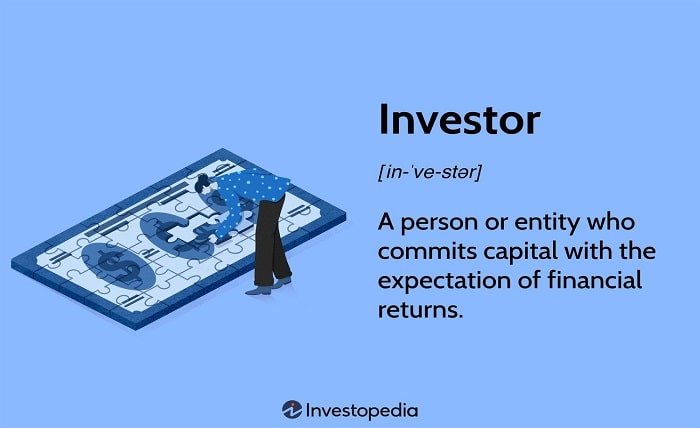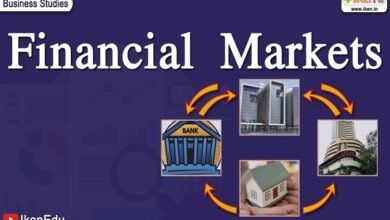
Introduction
Experienced investors have a deep understanding of the financial markets, having honed their skills through years of practice and study. Unlike beginners, experienced investors are well-versed in the complexities of investing, from analyzing market trends to managing risk effectively. This blog post is designed to provide these seasoned investors with advanced strategies and insights, helping them further refine their investment approach and achieve their financial goals.
Market Cycles and Trends
One of the key skills that separate experienced investors from novices is the ability to understand and interpret market cycles and trends. Experienced investors know that markets operate in cycles, with periods of growth followed by downturns. By recognizing these patterns, experienced investors can make informed decisions about when to buy or sell assets. This section delves into how experienced investors analyze market trends, using tools like technical analysis and economic indicators to forecast future movements.
Advanced Portfolio Diversification Strategies
Diversification is a fundamental principle for all investors, but experienced investors take this strategy to the next level. They understand that true diversification involves more than just spreading investments across different asset classes; it also requires balancing risk and reward within those classes. Experienced investors often diversify not only across stocks, bonds, and real estate but also within sectors, geographies, and even currencies. This section explores the advanced diversification strategies employed by experienced investors to minimize risk and maximize returns.
Risk Management Techniques for Experienced Investors
Risk management is crucial for any investor, but it’s especially important for experienced investors who often deal with larger portfolios and more complex investments. Experienced investors employ a range of risk management techniques, from setting stop-loss orders to hedging their portfolios with derivatives. This section provides a detailed look at how experienced investors manage risk, including strategies like position sizing, diversification, and the use of financial instruments to protect their investments.
The Importance of Asset Allocation for Experienced Investors
Asset allocation is another critical component of investment strategy, and experienced investors pay close attention to how their assets are allocated across different categories. They understand that the right mix of assets can significantly impact portfolio performance, particularly in volatile markets. This section discusses how experienced investors determine the optimal asset allocation based on factors like market conditions, investment goals, and risk tolerance.
Navigating Global Markets as Experienced Investors
Global markets offer vast opportunities but also come with unique challenges. Experienced investors are often keen to explore international investments to diversify their portfolios and tap into growth in emerging markets. However, investing globally requires a deep understanding of geopolitical risks, currency fluctuations, and different regulatory environments. This section examines how experienced investors approach global markets, including strategies for mitigating risks and capitalizing on international opportunities.
Leveraging Technology and Data for Investment Decisions
In the digital age, technology and data play a pivotal role in the decision-making process of experienced investors. From algorithmic trading platforms to AI-driven market analysis tools, experienced investors have access to a wealth of resources that can enhance their investment strategies. This section explores the various technological tools and data analytics methods that experienced investors use to gain a competitive edge in the market.
Behavioral Finance for Experienced Investors
Behavioral finance studies the psychological factors that influence investor behavior. Experienced investors are aware of how emotions like fear and greed can affect decision-making, and they strive to mitigate these influences in their own investment practices. This section delves into the principles of behavioral finance that are particularly relevant to experienced investors, such as recognizing cognitive biases, managing emotional responses, and maintaining a disciplined approach to investing.
Tax-Efficient Investing for Experienced Investors
Tax efficiency is a critical consideration for experienced investors, especially those with substantial portfolios. By minimizing tax liabilities, experienced investors can enhance their overall returns. This section covers various tax-efficient investment strategies, such as using tax-advantaged accounts, harvesting tax losses, and selecting tax-efficient funds. Understanding the tax implications of different investment choices allows experienced investors to optimize their portfolios from a tax perspective.
Estate Planning and Wealth Transfer for Experienced Investors
For many experienced investors, estate planning and wealth transfer are important aspects of their financial strategy. Ensuring that their wealth is preserved and passed on to future generations in the most efficient manner is a key concern. This section discusses the estate planning tools and techniques commonly used by experienced investors, including trusts, wills, and charitable giving strategies. By planning ahead, experienced investors can protect their legacy and ensure a smooth transfer of wealth.
The Role of Alternative Investments for Experienced Investors
Alternative investments, such as private equity, hedge funds, and real assets, play a significant role in the portfolios of experienced investors. These investments offer the potential for high returns and diversification but also come with increased risk and complexity. This section explores how experienced investors incorporate alternative investments into their portfolios, balancing the potential rewards with the inherent risks.
Continuous Learning and Adaptation for Experienced Investors
The financial markets are constantly evolving, and even experienced investors must continuously adapt their strategies to stay ahead. Whether it’s keeping up with the latest market trends, learning about new financial instruments, or refining their investment approach, experienced investors understand the importance of lifelong learning. This section highlights the various ways experienced investors stay informed and adapt to changes in the investment landscape, ensuring they remain successful over the long term.
Conclusion
Experienced investors possess a wealth of knowledge and skills that set them apart in the world of finance. However, even the most seasoned investors can benefit from refining their strategies and staying informed about the latest developments in the market. This comprehensive guide has provided insights into advanced investment techniques, risk management, and the importance of continuous learning for experienced investors. By applying these principles, experienced investors can continue to achieve their financial goals and navigate the ever-changing landscape of global markets with confidence.
FAQs
1. What are the key differences between experienced investors and novice investors?
Experienced investors have a deeper understanding of market cycles, advanced diversification strategies, and risk management techniques compared to novice investors. They also use more sophisticated tools and data analysis to inform their investment decisions.
2. How do experienced investors manage risk?
Experienced investors manage risk through various techniques such as diversification, position sizing, and the use of financial instruments like options and futures. They also set stop-loss orders and employ hedging strategies to protect their portfolios.
3. Why is asset allocation important for experienced investors?
Asset allocation is crucial because it determines the mix of assets in a portfolio, which can significantly impact performance. Experienced investors carefully allocate assets based on their risk tolerance, investment goals, and market conditions.
4. What role do alternative investments play in the portfolios of experienced investors?
Alternative investments provide diversification and the potential for higher returns. Experienced investors often include private equity, hedge funds, and real assets in their portfolios, balancing the risks with the potential rewards.
5. How do experienced investors stay ahead in the financial markets?
Experienced investors stay ahead by continuously learning and adapting their strategies. They keep up with market trends, explore new investment opportunities, and refine their approaches to remain successful in the ever-changing financial landscape.





